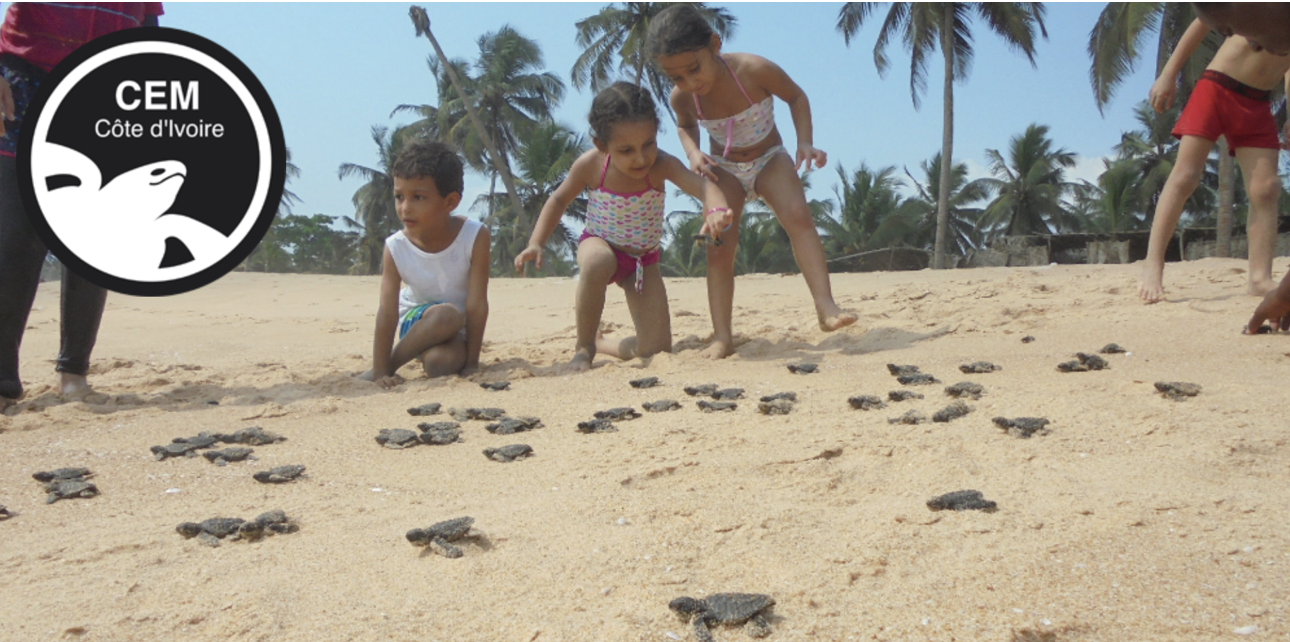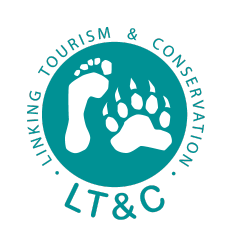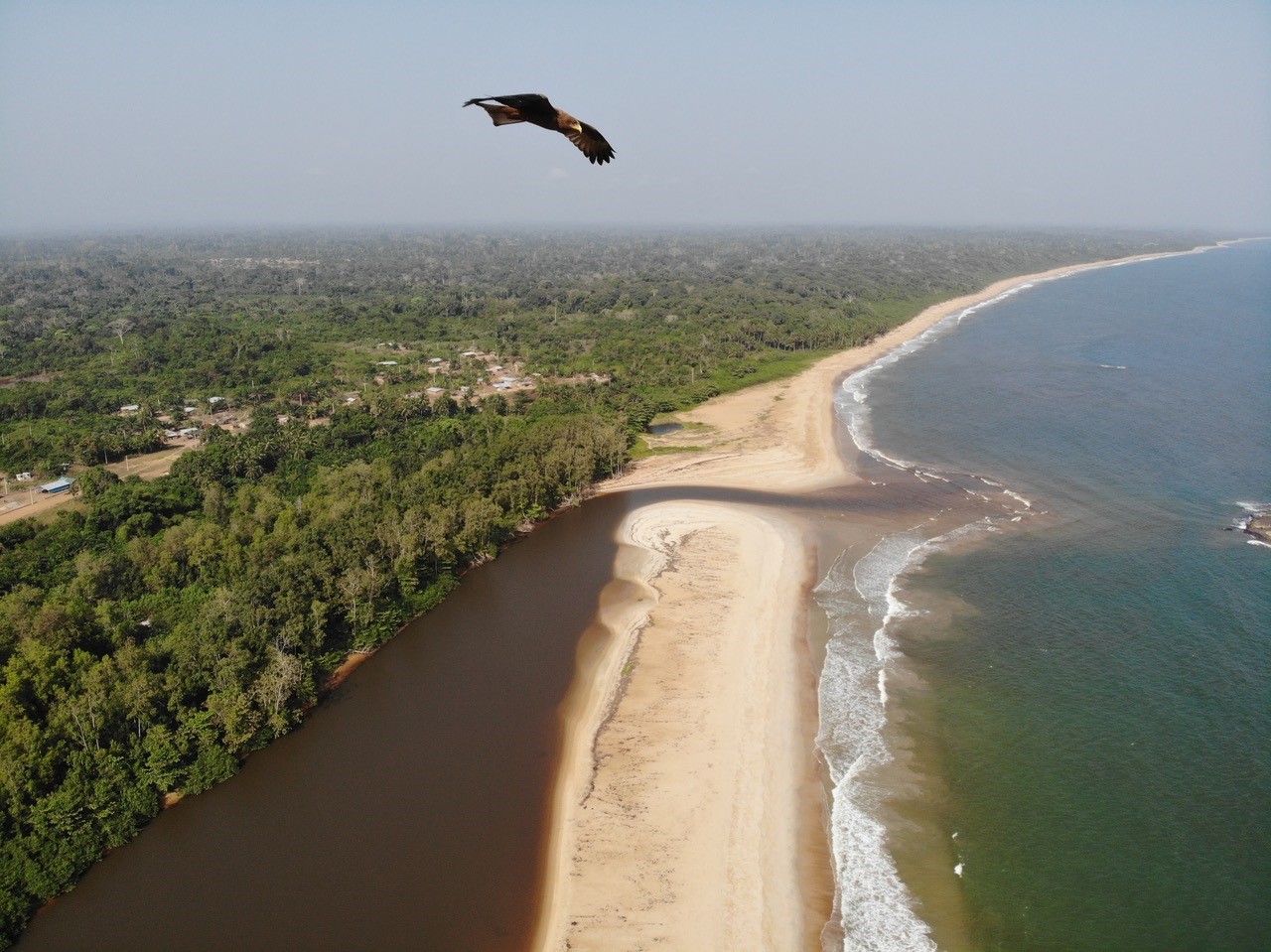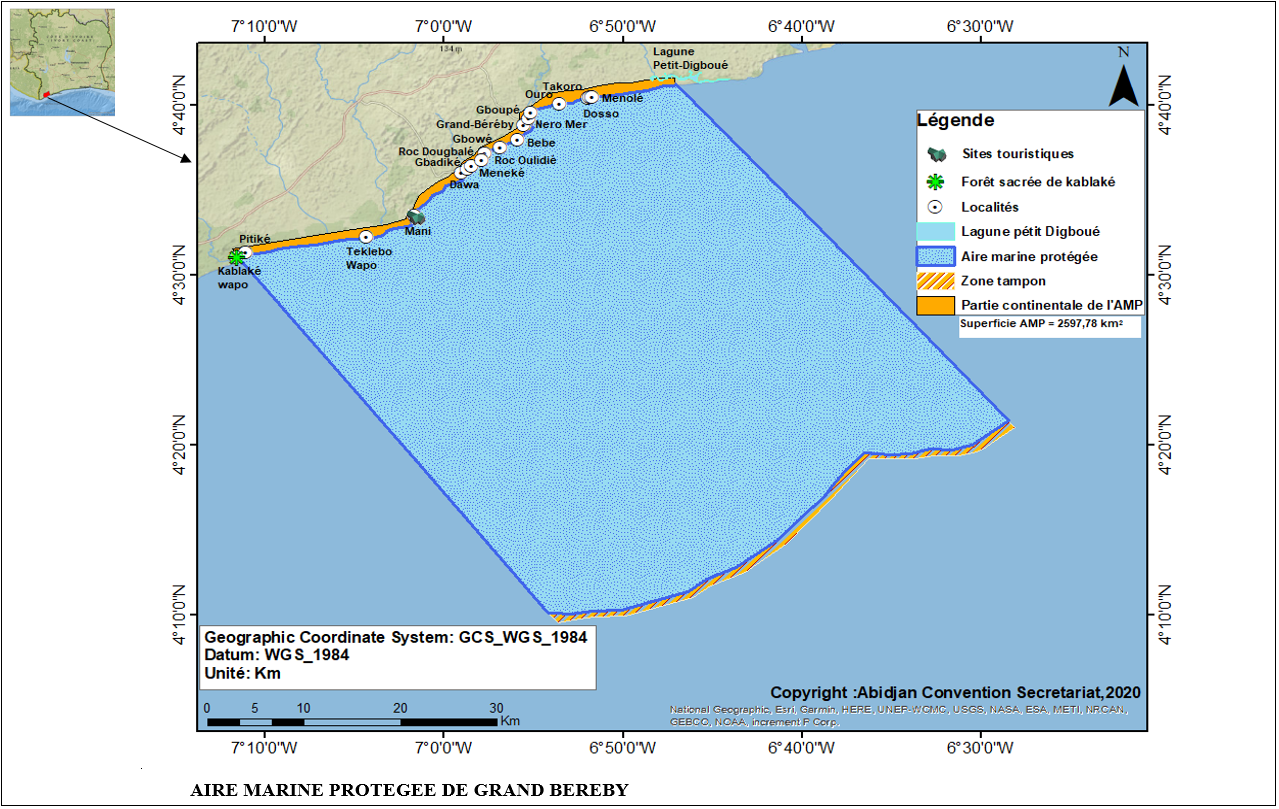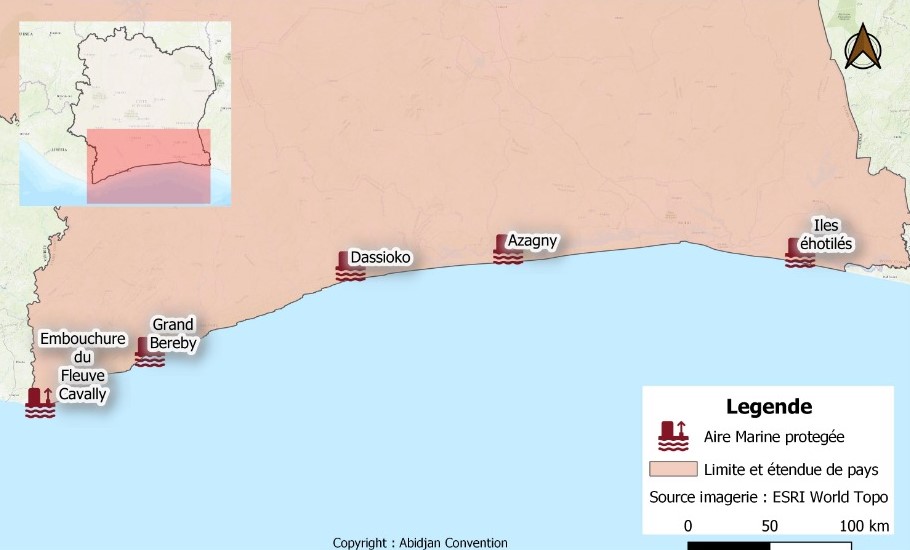December 21, 2020: The Government of Côte d’Ivoire (Ivory Coast) announced its first Marine Protected Area (MPA) in Grand-Béréby. Under Professor Joseph Séka SEKA’s chairmanship, Minister of the Environment and Sustainable Development a major ceremony took place on-site, with strong involvement of the local communities and high-level participation of different national ministries, UN representatives and international guests, including the ambassador of Sweden. As the Environment Minister in his press release describes, adopted Côte d’Ivoire Law n°2017 – 378 of 2 June 2017 on the Development, Protection and Integrated Management of Coastal Areas. The Grand Béréby site has been identified as the first site in the initiative to create the MPA network in Côte d’Ivoire. This network includes four others: the cross-border site of the mouth of the Cavally river in Tabou (Ivory Coast – Liberia), the site of the Dassioko classified forest, the site of the Azagny national park and the cross-border site of the Ehotilés islands (Ivory Coast – Ghana). See also the press release of the UN Abidjan Convention Secretariate and the interview with the president of CEM
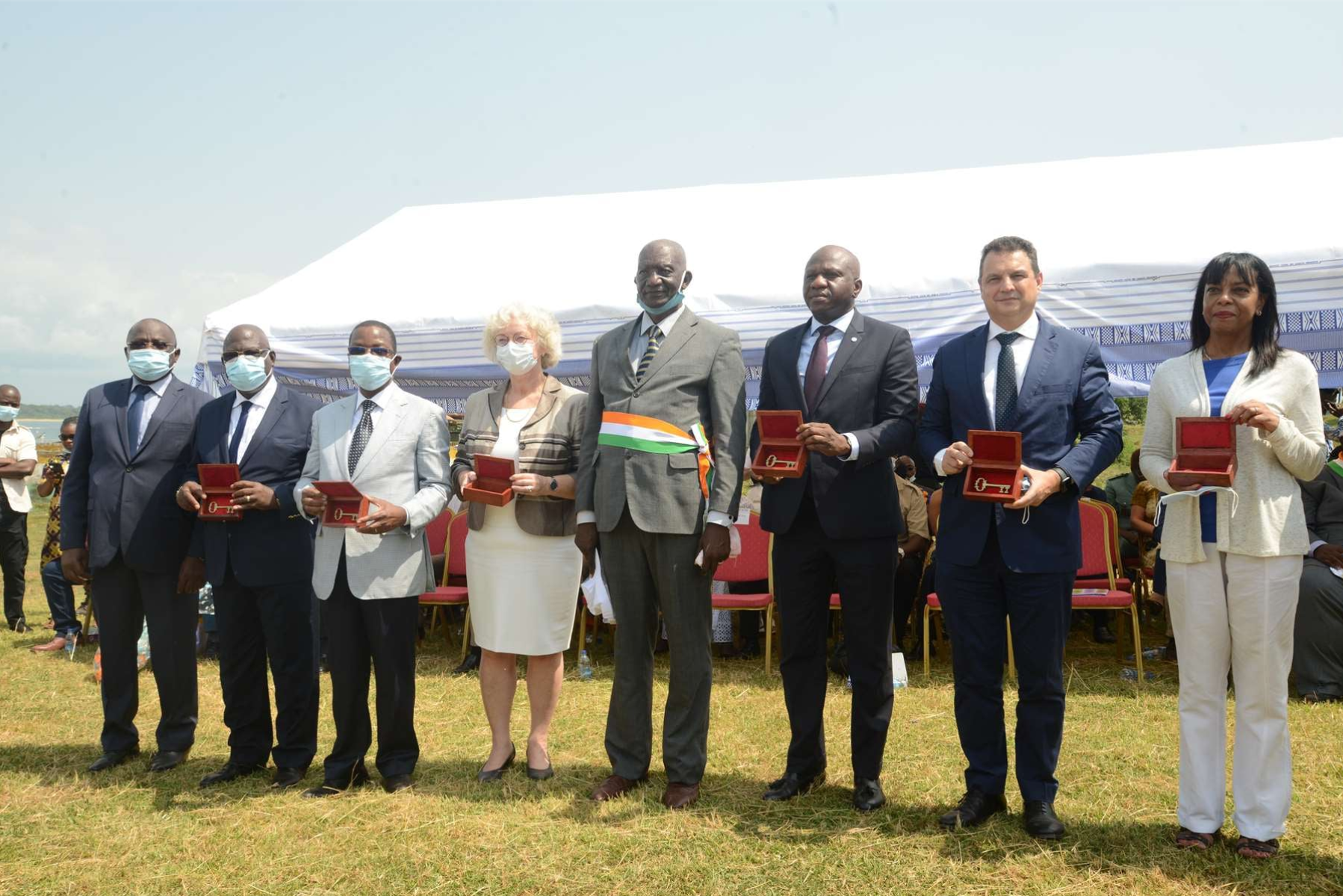
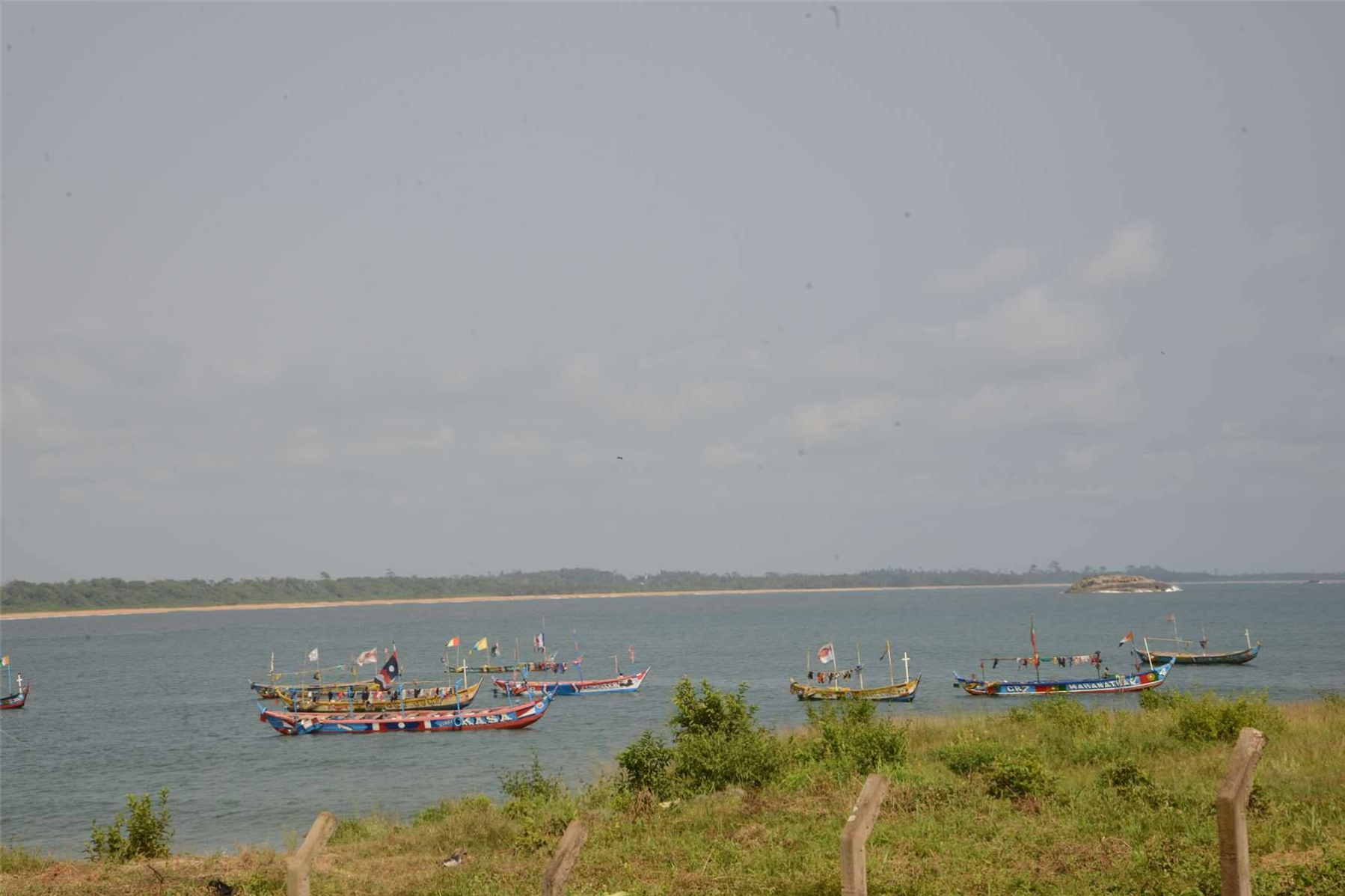
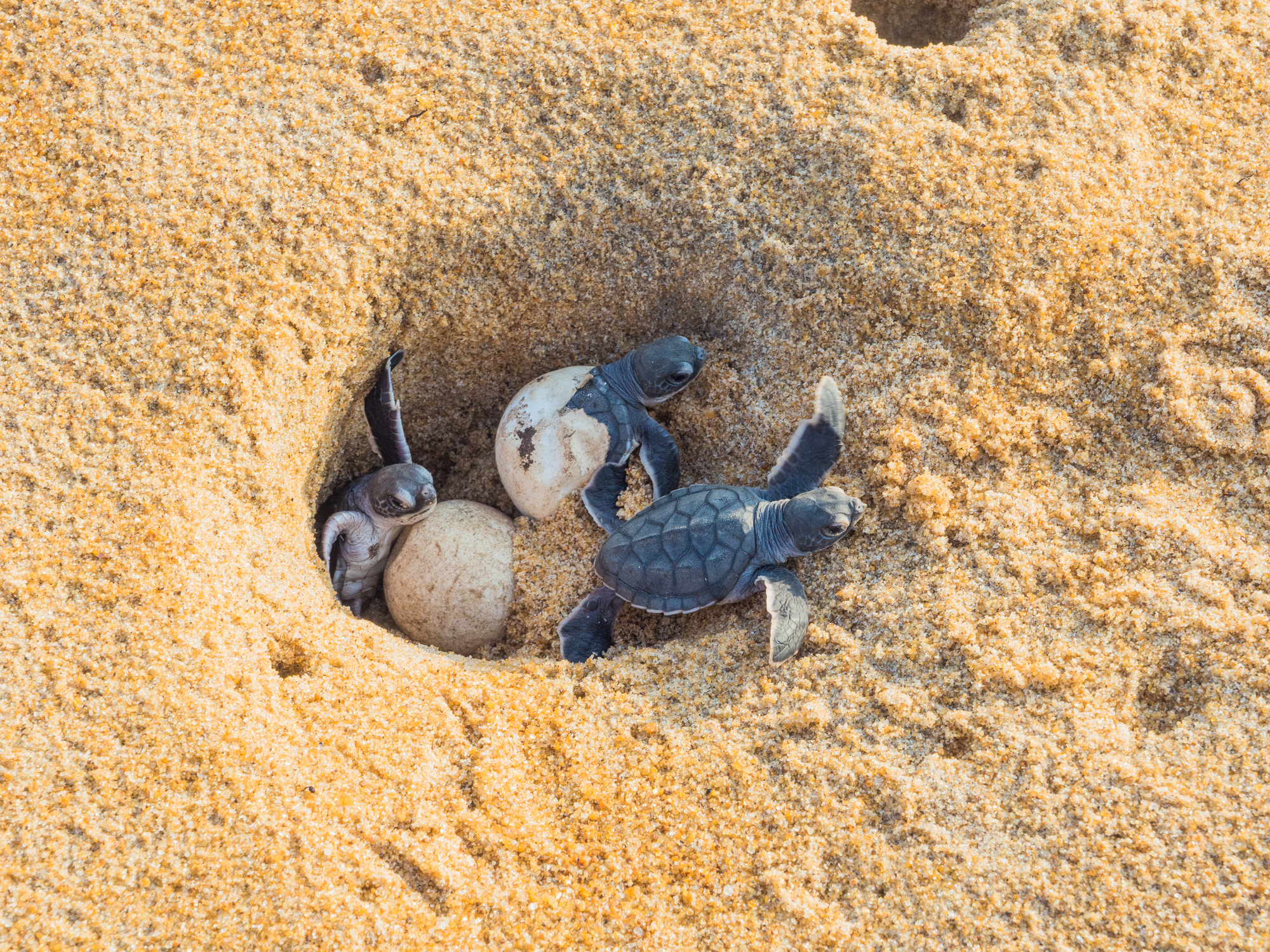
LT&C has reported several times about the engagement of our late member Olaf Grell, who worked for the local non-governmental organisation Conservation des Espèces Marines (CEM) in Grand Béréby and today received special attention at the event. The announcement of the 2,600km2 MPA can be seen as an honour for Olaf but is the culmination of years of work by the Ivorian government, the Abidjan Convention, the Swedish Government, and CEM as the essential local NGO. CEM worked, among others, in partnership with and received support from the University of Exeter, the Wildlife Conservation Society (WCS), Rainforest Trust, oceanBASIS, Manfred Hermsen Stiftung, US Fish and Wildlife Service, and from the German-based CEM-Europe. The project “Grand Béréby” received also recognition of Blue Solutions (cooperation of GIZ, IUCN, UNEP and GRID-Arendal), and now features as an LT&C-Example..
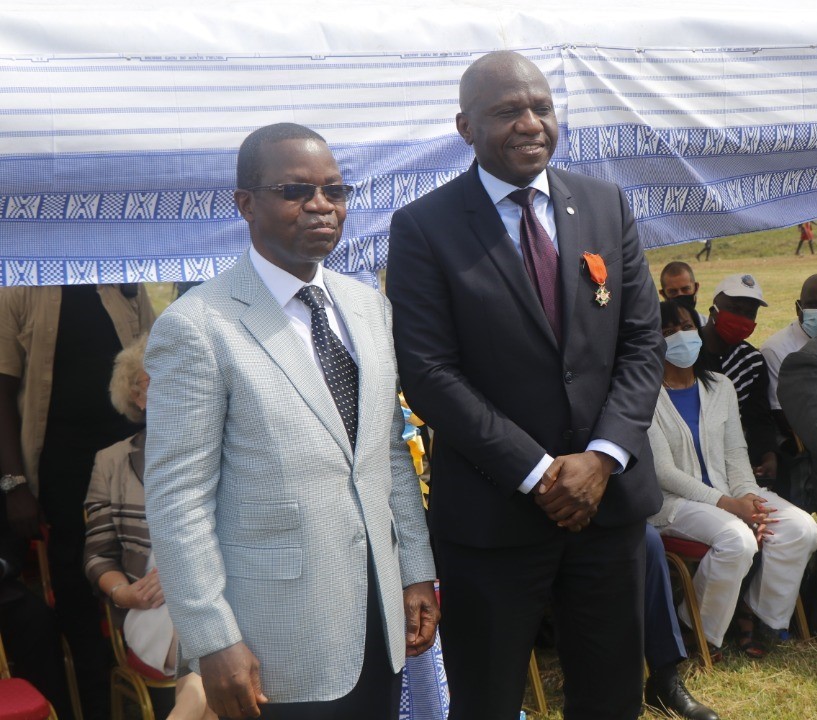
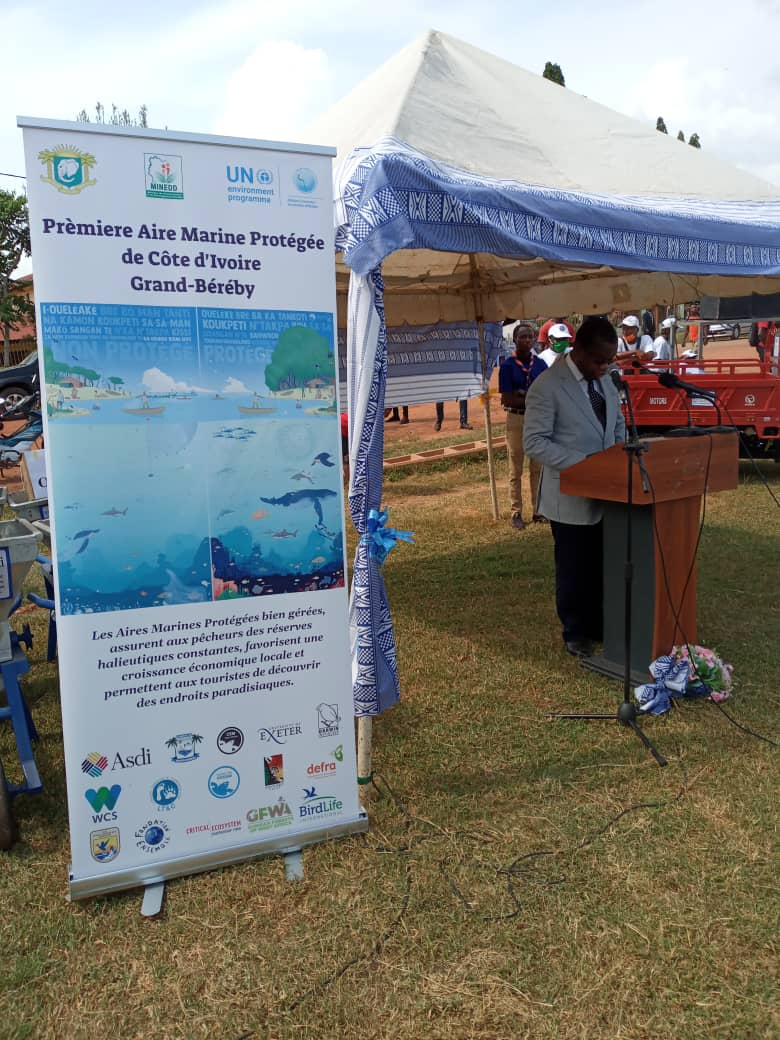
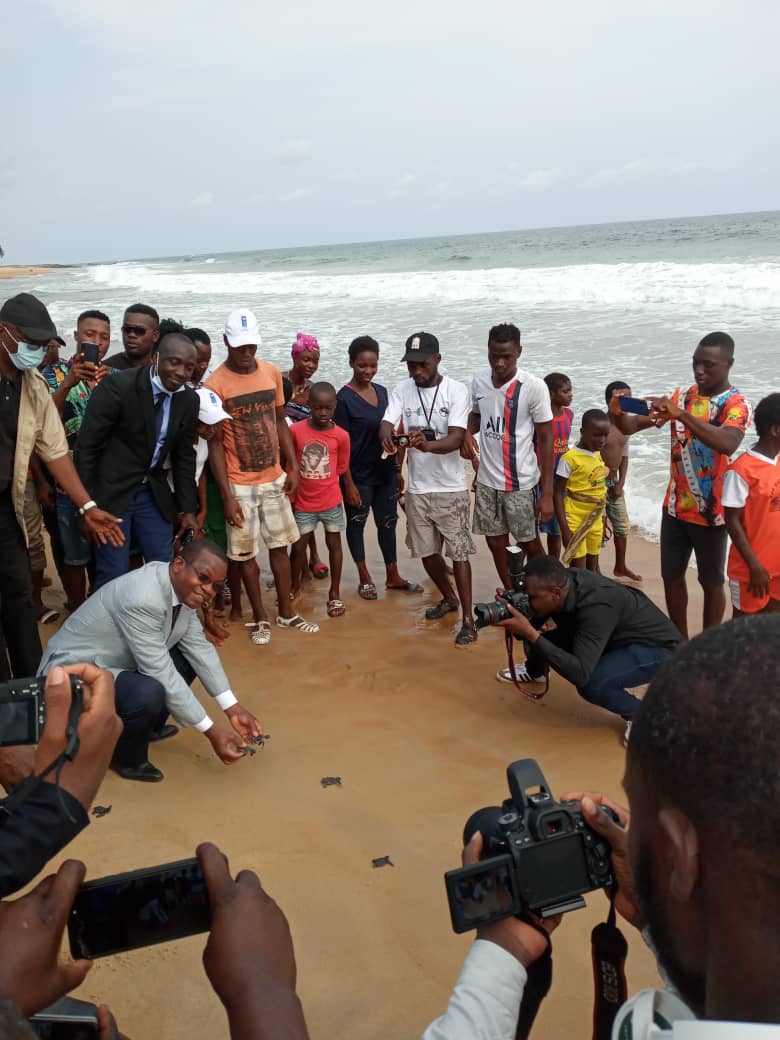
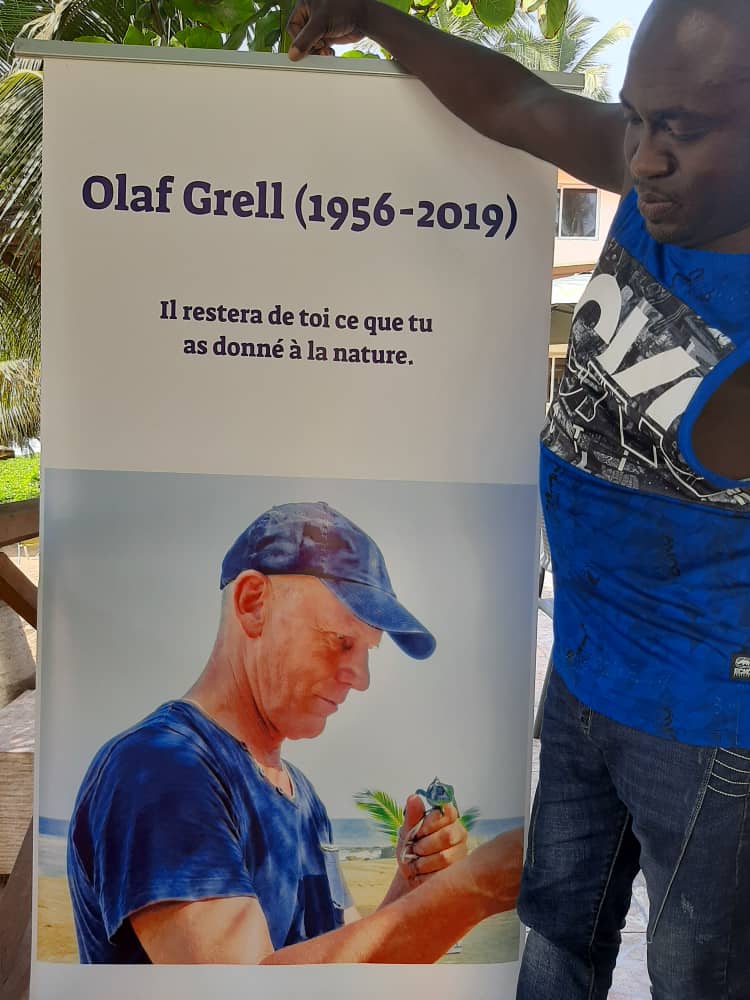
Remembering Olaf Grell. Photo: CEM 
Poster MPA Grand Béréby. Photo: CEM
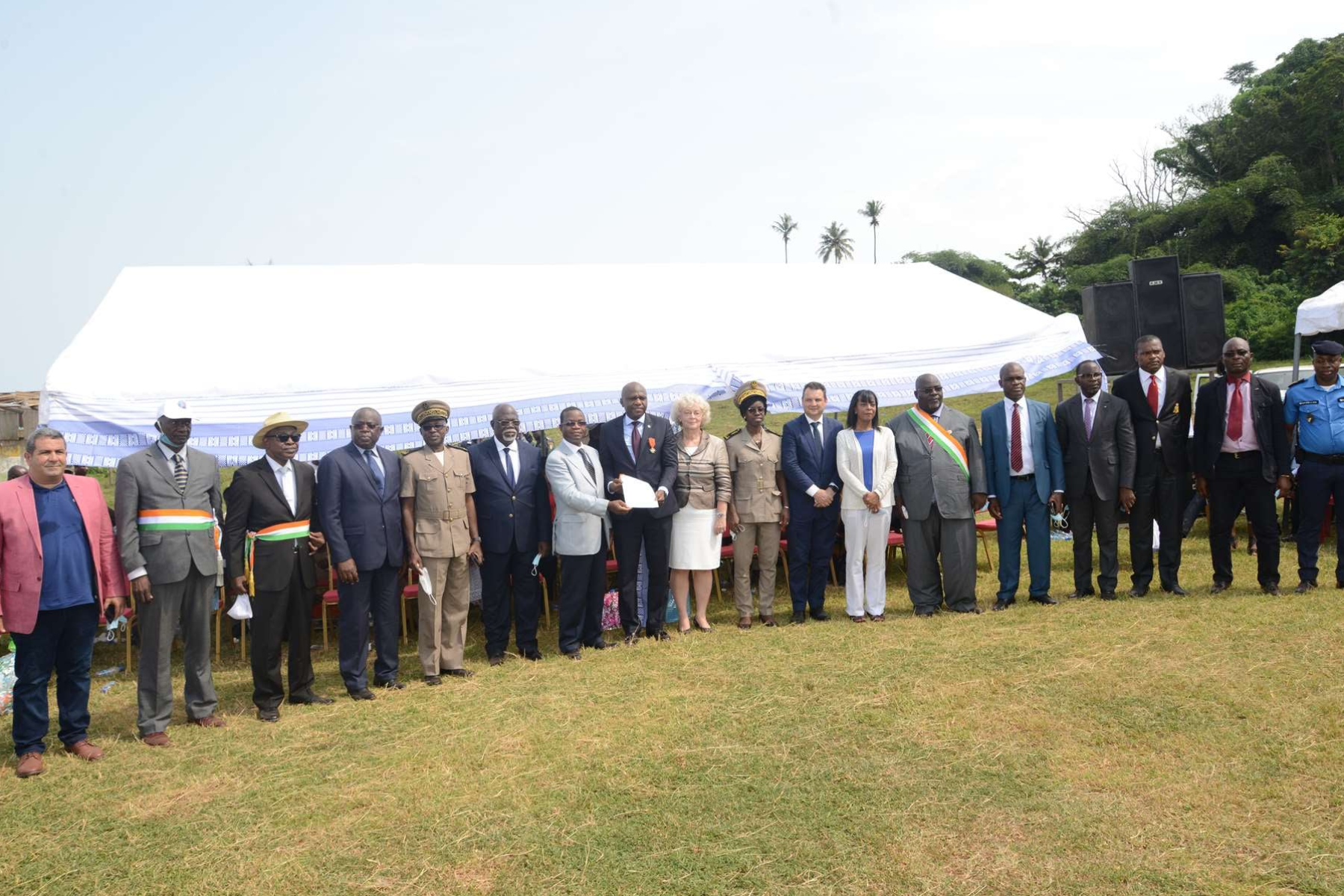
Representatives of the local communities, of the Government of Côte d’Ivoire, UN organisations and Sweden opened the MPA at Grand Béréby. Photo: Côte d’Ivoire Minister of Environment and Sustainable Development 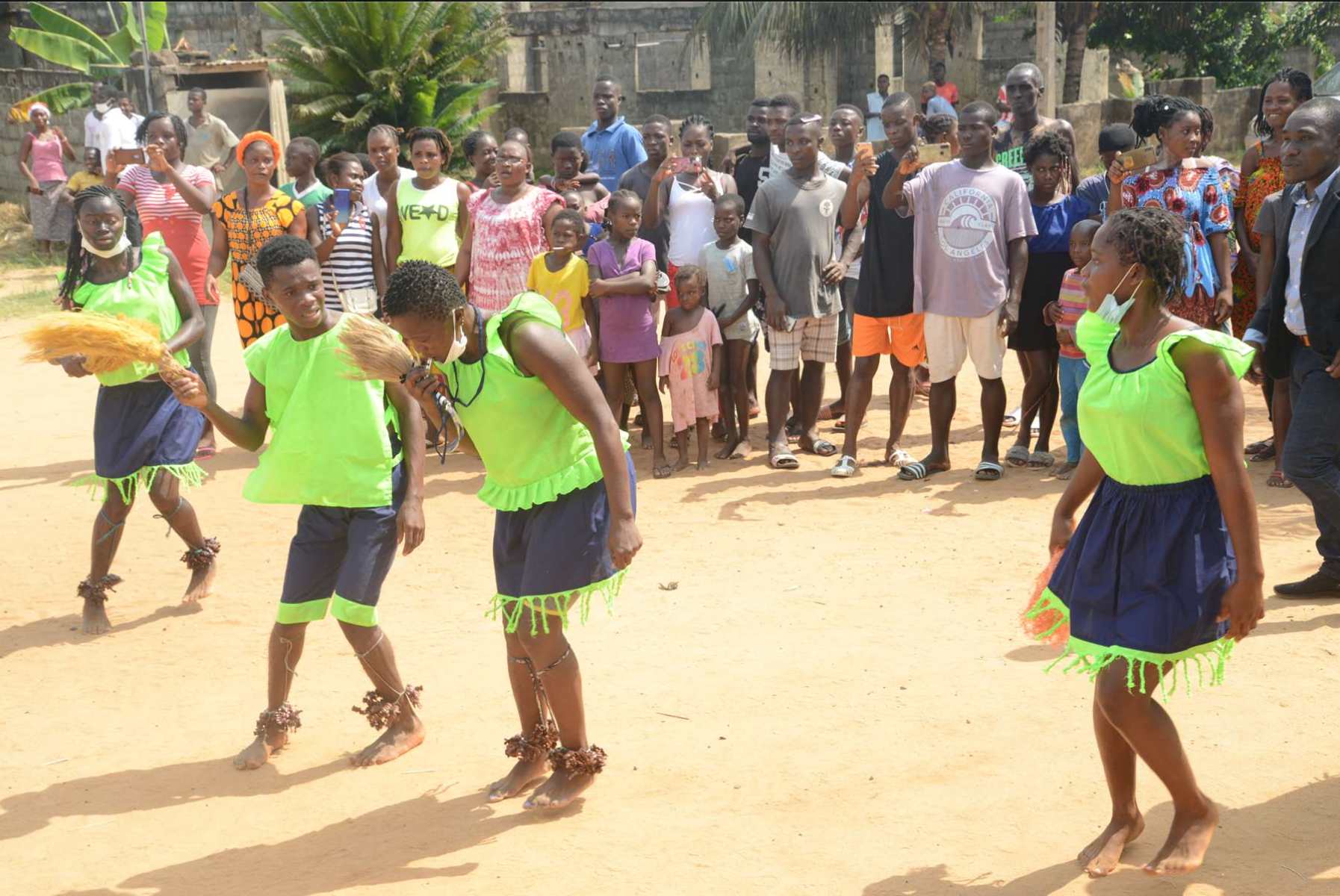
Local children performing. Photo: Côte d’Ivoire Minister of Environment and Sustainable Development
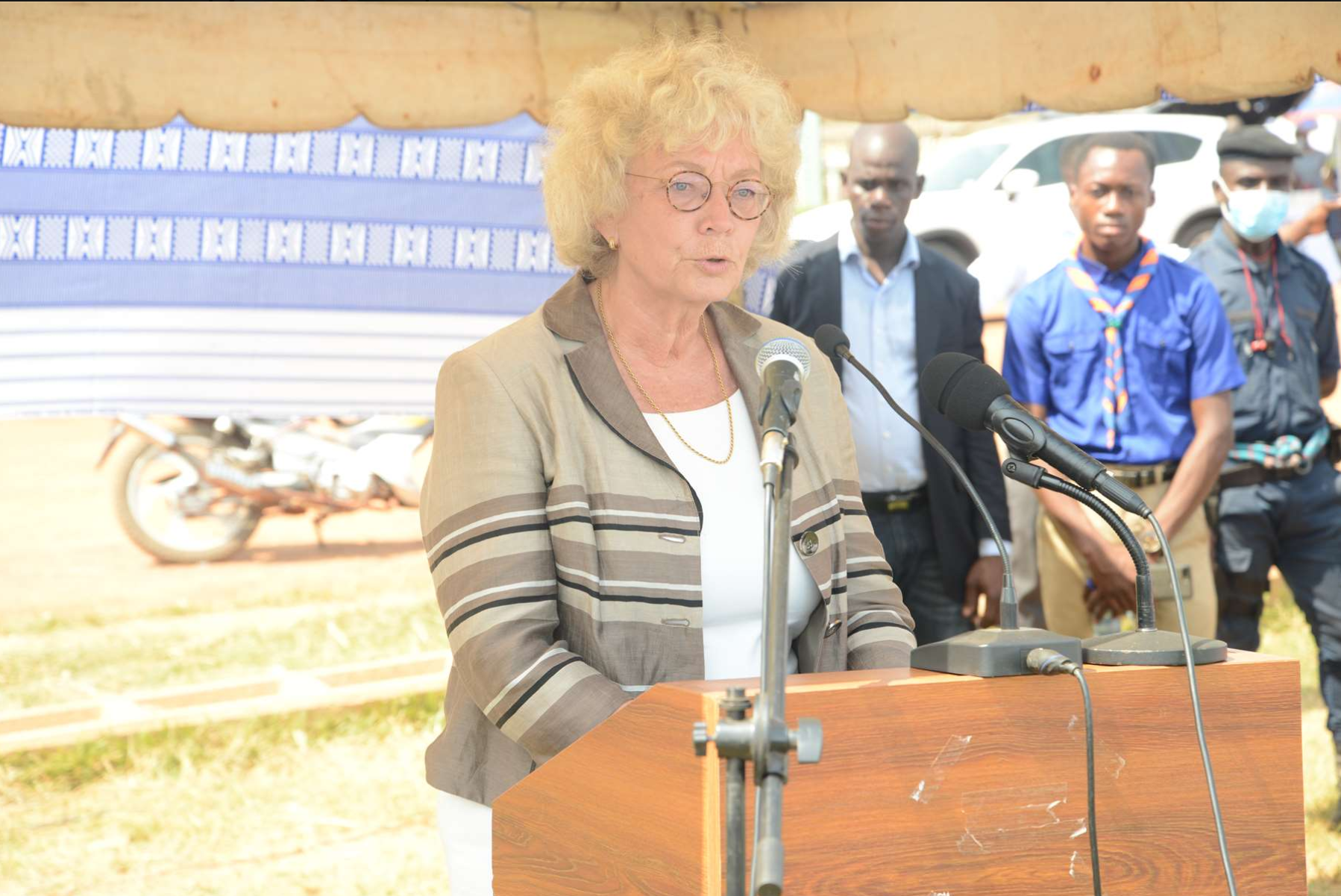
Swedish Ambassador, Maria Leissner. Photo: Côte d’Ivoire Minister of Environment and Sustainable Development 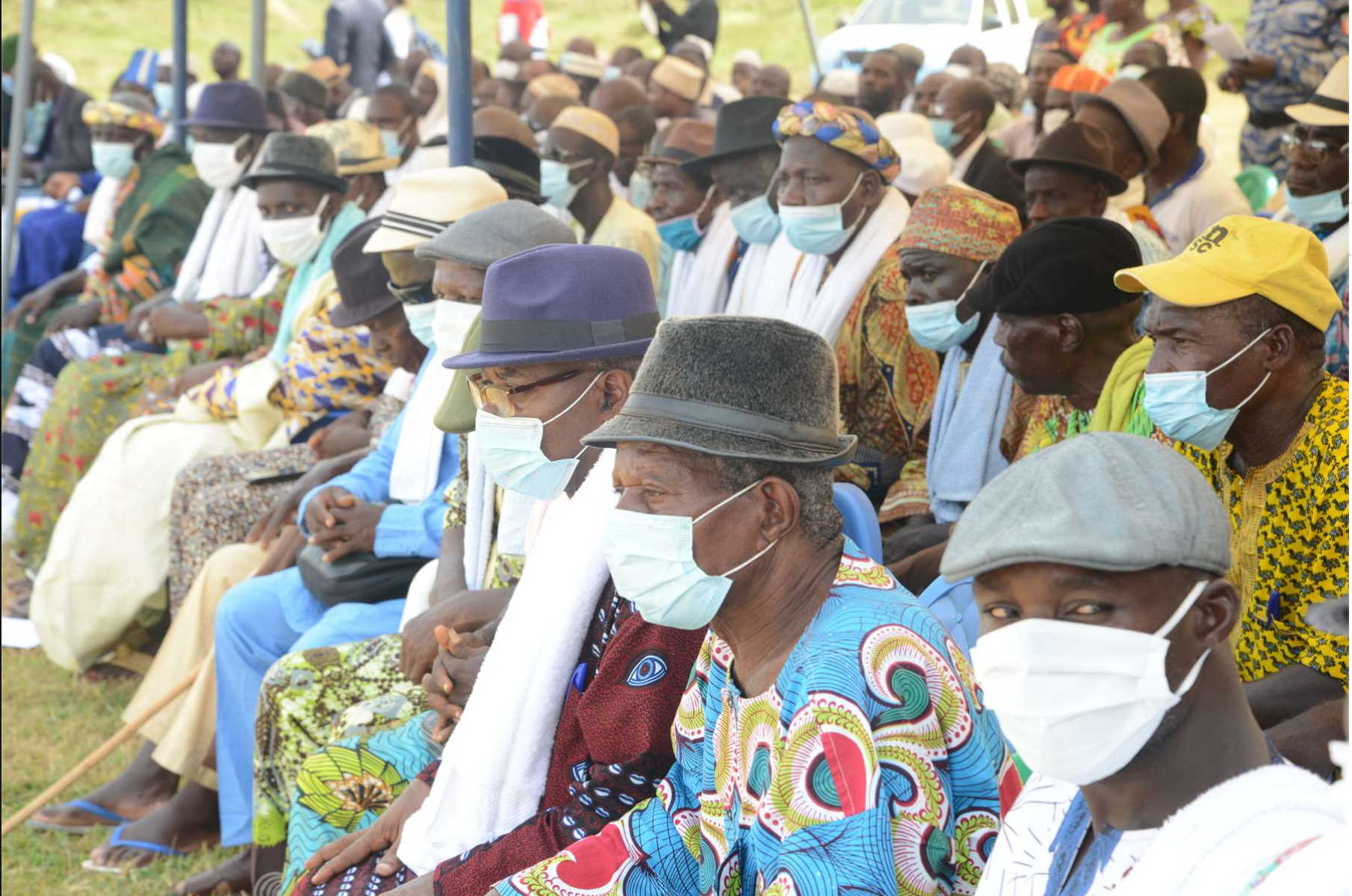
Despite Corona are many locals participating in the event. Photo: Côte d’Ivoire Minister of Environment and Sustainable Development
There are maybe even more organisations and institutions involved and should be mentioned. Local tourism businesses play a positive role, and their support can justify profiling the MPA establishment as an LT&C-Example. It will be crucial for the future development of the MPA that all these players and stakeholders complement each other and work transparently together. For the future spatial planning of the reserve, the Exeter University could play a major role with its West-African experience in this field. It may receive funding for such work – as in the past – from the UK government’s “Darwin Initiative“. We, therefore, in the following attach also the press release of Exeter University about the Grand Béréby MPA-creation event:
Ivory Coast creates first Marine Protected Area
Ivory Coast has announced the creation of its first Marine Protected Area (MPA).
The MPA will cover 2,600km2 (1,000 square miles) of pristine ocean off the coast of Grand-Béréby, protecting marine biodiversity including threatened shark and turtle species.
The announcement is the culmination of years of work by the Ivorian government, the Abidjan Convention, Swedish Government and local non-governmental organisation Conservation des Espèces Marines (CEM), supported by the University of Exeter and the Wildlife Conservation Society.
This work was done alongside communities in Grand-Béréby to strengthen protection of marine biodiversity and fisheries resources, and to enhance local livelihoods.
The Minister for the Environment and Sustainable Development, Professor Joseph Seka Seka said: “Today I announce our decision to create Cote d’Ivoire’s first Marine Protected Area in Grand-Béréby, a ‘partially protected’ area that will include an integrally protected zone closed to all activities, and an eco-development zone that will support sustainable fishing practices and ecotourism activities.”
In September, the Ivorian government stated its intention to create five MPAs – and today’s announcement confirms the first of these.
A legal process will now take place before the MPA rules come into effect.
The MPA location includes important sea-bed habitats and reef ecosystems, as well as globally significant nesting and foraging grounds for the leatherback, green and olive ridley turtles.
It will also protect more than 20 species of sharks and rays, including hammerheads, manta rays and guitarfish – a group of rays now considered the world’s most threatened marine fish.
Abou Bamba, Executive Secretary of the UNEP Abidjan Convention, said: “The government of Cote d’Ivoire should be widely applauded for this truly momentous decision, which shows tremendous leadership that we hope will resonate and be replicated across the Atlantic facade of Africa to unlock the economic potential of the continent coastal zones.”
Alexandre Dah, President of CEM, said: “The government of Cote d’Ivoire should be congratulated for translating our science into policy, with this new MPA both safeguarding globally important populations of threatened marine species, as well as supporting the livelihoods of local communities who depend on fisheries resources.”
The creation of the MPA relied on detailed scientific data collected by a team including the University of Exeter, who were supported by funding from the UK government’s Darwin Initiative and the Rainforest Trust.
The research included participatory work with local communities to collect data on the biodiversity and health of the waters, including underwater surveys of marine habitats and previously undocumented reefs, and satellite tagging of sea turtles.
“This MPA is in a really unique area of marine biodiversity, whose reefs provide a natural refuge that will now be complemented by legal protection,” said Dr Kristian Metcalfe, of the Centre for Ecology and Conservation on Exeter’s Penryn Campus in Cornwall.
“The political will for protecting marine biodiversity and supporting sustainable resource use has been exemplary, and so we are delighted that our collaborative efforts have been able to underpin such a massive step in marine conservation.
“Levels of marine protection in West Africa are generally low, so the Ivorian government’s creation of a Marine Protected Area is a big statement that will hopefully act as a regional exemplar.”
The Exeter team were invited to Ivory Coast after working on marine conservation projects, first in Gabon and then in the Republic of the Congo.
For further information:
CEM: Mr Alexandre Dah (+225 08 76 24 45 dahalexandre6@gmail.com) Mr José Gómez Peñate (+ 225 05 75 53 66 gomezp_jm@hotmail.com). Note: Mr Dah speaks French, Mr Gómez speaks French and Spanish.
Abidjan Convention: M. Abou Bamba, Executive Secretary, Abidjan Convention/UNEP – Tel: +225 027 18781 abou.bamba@un.org
